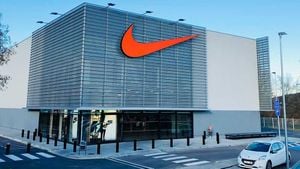Every year brings new expectations and trends, and as we approach 2025, various industries are gearing up for shifts driven by cultural changes, technology, and consumer preferences. From lifestyle habits to retail innovations and fashion statements, the trends expected to dominate the year reveal how society is adapting to strike a balance between modern conveniences and traditional values.
One of the prominent lifestyle trends projected for 2025 is the dual emphasis on both physical and mental health. Traditionally, health was often perceived as merely physical, but the collective consciousness has evolved. According to recent reports, individuals are becoming increasingly aware of the significance of mental well-being, illustrated by the saying 'a healthy mind resides within a healthy body.' The convergence of mental and physical health could reshape personal care practices significantly.
Another noteworthy shift is the growing preference for remote work. Employees are increasingly favoring flexible work arrangements, viewing the rigid routine of office hours as akin to modern-day slavery. More people are aspiring to work from home or adopt hybrid models, allowing them to reclaim hours typically lost commuting. The comfort of working from one’s living room during inclement weather can feel like hitting the jackpot for many.
With sustainability at the forefront of consumer choices, shopping habits are also shifting toward more sustainable practices. Whether it’s purchasing clothing, food, or home decor, 2025 is set to witness consumers gravitating toward long-lasting products. Concurrently, campaigns against food waste are expected to gain momentum, emphasizing mindful consumption.
Personalized nutrition is another trend poised to flourish, particularly among urban dwellers with disposable income. These consumers are increasingly consulting nutritionists to create customized meal plans based on their specific lifestyle needs and weight goals. This trend demonstrates not only awareness of health but also the desire for dietary tailoring to optimize personal wellness.
The fast-paced lifestyle typical of urban environments has incited the popularity of 'slow living.' Individuals are seeking to reclaim their time, prioritizing moments of respite amid the frenzy of daily life. This retrospective approach may see people adopting practices reminiscent of the 'Dolce far niente,' resulting in more lifestyle-options focused on appreciation rather than obligation.
Digital detoxing marks another pivotal trend, as individuals express the desire to disconnect from the incessant buzz of their devices. A noticeable increase is seen in retreats focused on helping people unplug, seeking solace away from constant connectivity. Many are opting for getaways devoid of Wi-Fi to escape the relentless stimulation of modern life.
A resurgence of interest in real-life community interactions is evident. Many are seeking local groups for face-to-face interactions, whether it be running clubs or book societies. With searches for such communities soaring, this trend emphasizes the human need for tangible connections over virtual ones.
On the retail front, significant changes are anticipated as the industry shifts toward unified commerce. This new model goes beyond omnichannel sales to integrate various retail channels seamlessly, allowing for real-time inventory tracking and enhanced customer experiences. Retailers investing in centralized systems can provide customers with immediate product availability, streamlining their shopping experience.
Artificial intelligence (AI) is becoming increasingly prevalent, tailoring unique shopping experiences. From virtual try-ons to personalized marketing, the integration of AI allows for nuanced customer interactions. Retailers employing AI tools can analyze shopping behavior, tailoring the shopping experience to meet individual customer needs more accurately.
Another challenge for retail leaders is loss prevention, as theft and fraud continue to plague the industry. Solutions incorporating AI, including smart cameras and thermal mapping, are set to advance to assure improved security measures. These tools can alert store operators of suspicious behavior, thereby reducing potential losses significantly.
Corporate purchasing trends are also shifting. Businesses are recognizing the necessity of investing in quality IT infrastructure rather than considering it just another cost. Demand for premium products is rising, alongside requests for extended warranties and support services. By 2025, it is forecasted these additional services could account for up to 10% of corporate sales, marking a notable transformation.
With the fashion industry, there is no shortage of exciting trends to behold. The 'New Arrivals 2025' campaign is already previewing a collection showcasing styles reminiscent of the past yet modernized to fit today’s sensibilities. Sneakers like Converse are set to make significant comebacks, along with bolder designs inspired by boxing footwear. Users of these offerings can expect to combine style with comfort effortlessly.
Among men's footwear, Puma Speedcat sneakers are projected to be popular, endorsed not only for functionality but also their stylish aesthetics. Simultaneously, 'daddy shoes' are making waves with their retro designs satisfying demand for trendy yet comfortable footwear.
2025 is shaping up to be transformative across various sectors, as society, businesses, and individuals adapt their habits, expectations, and product preferences. Whether it is through embracing personal health, rethinking community engagement, or redefining shopping experiences, the trends of 2025 are poised to reflect the dynamic and interconnected way we live today.



